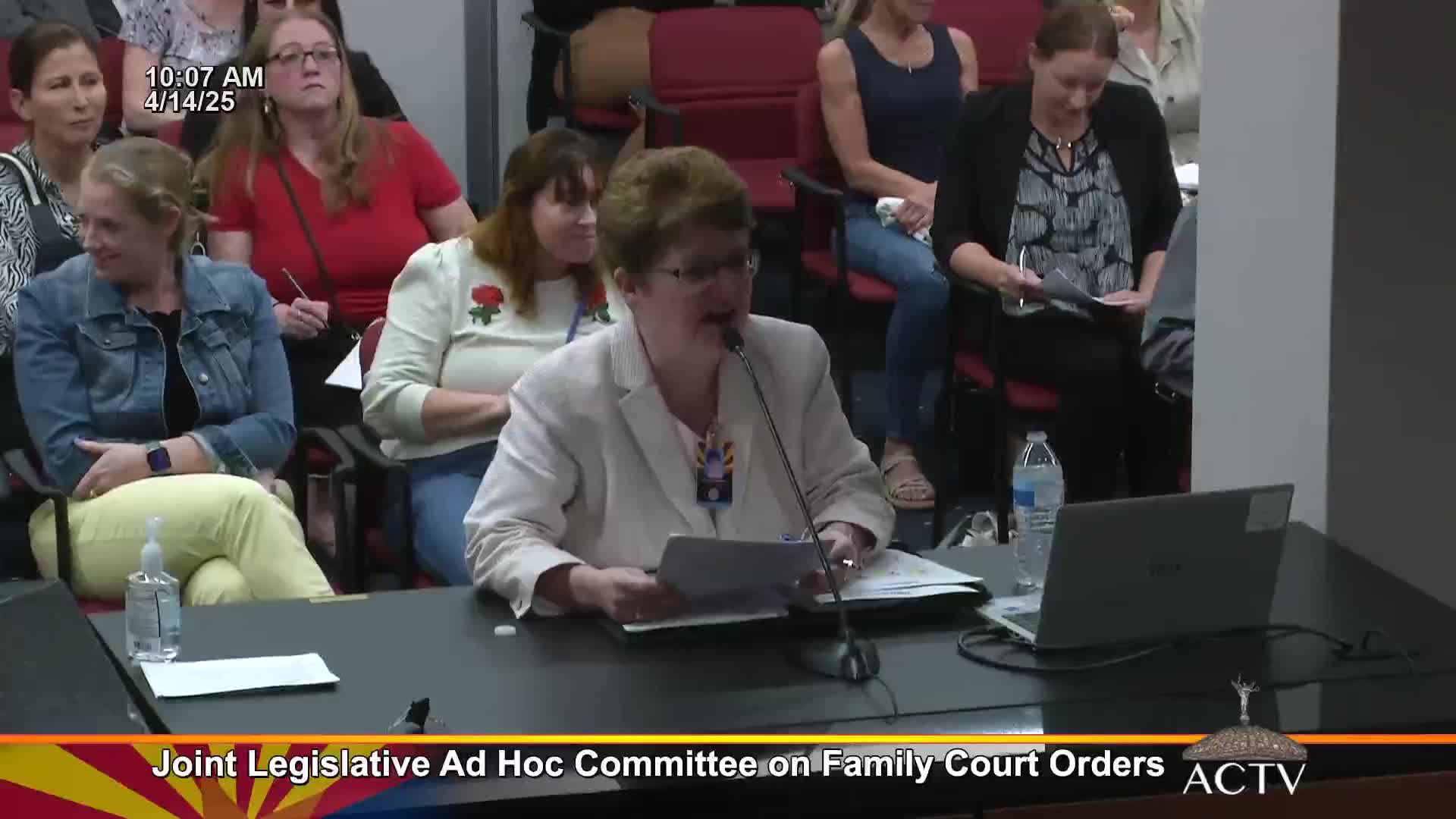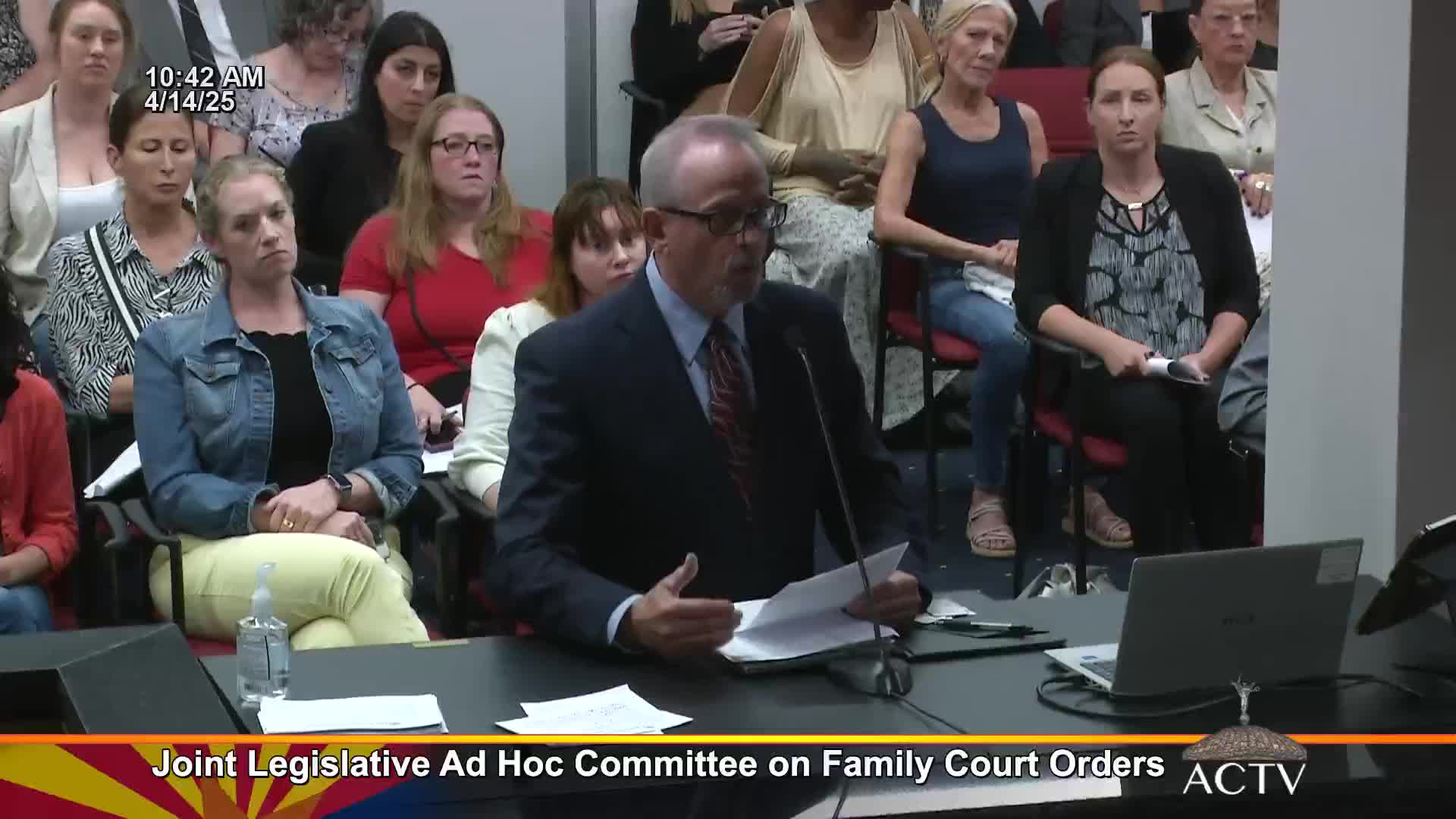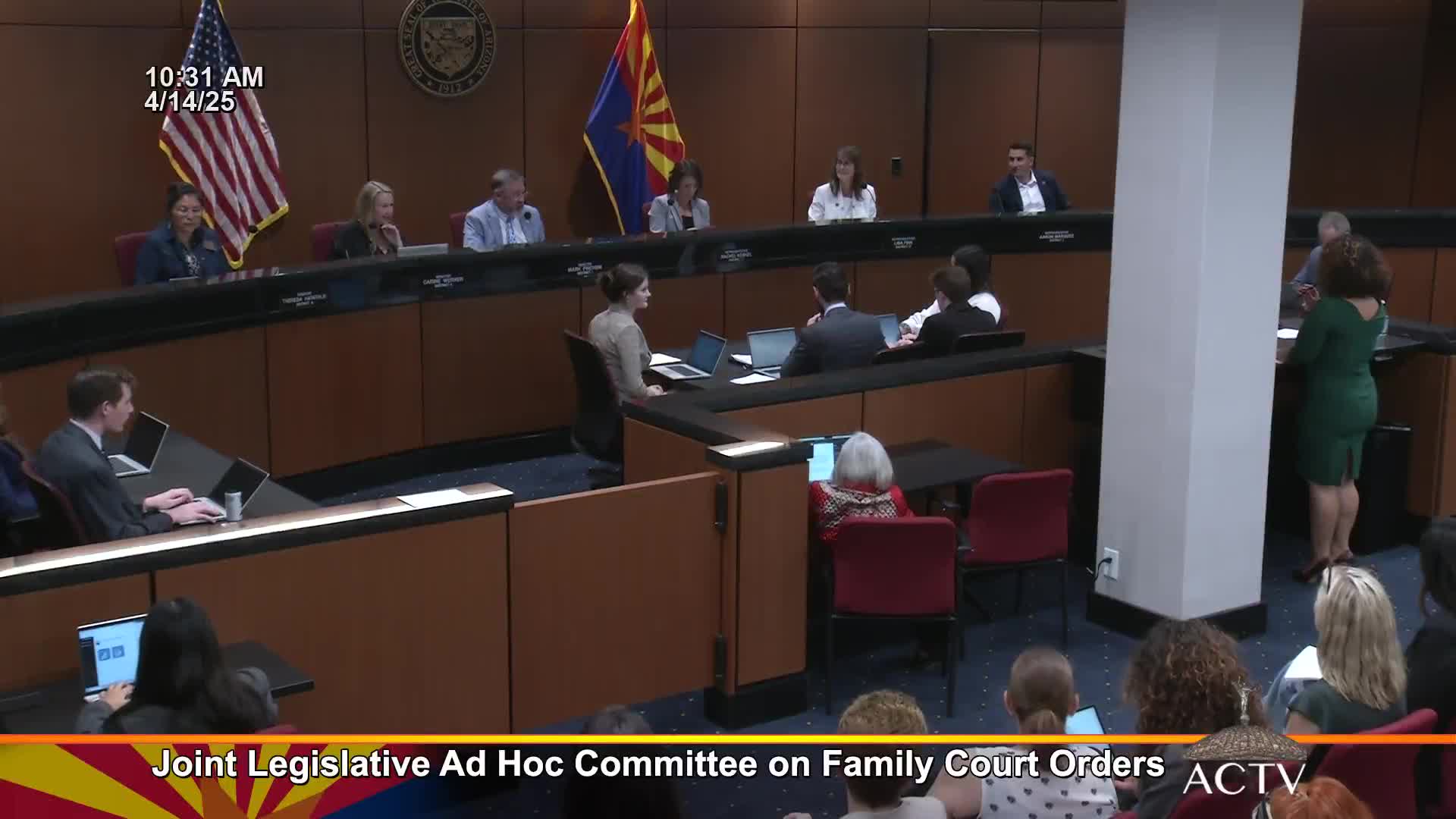Article not found
This article is no longer available. But don't worry—we've gathered other articles that discuss the same topic.

Arizona Ombudsman outlines role, limits and statutes for public complaints; behavioral health board reports complaint data

Arizona Legislature opens ad hoc hearings on family court orders; public testimony scheduled across five sessions

